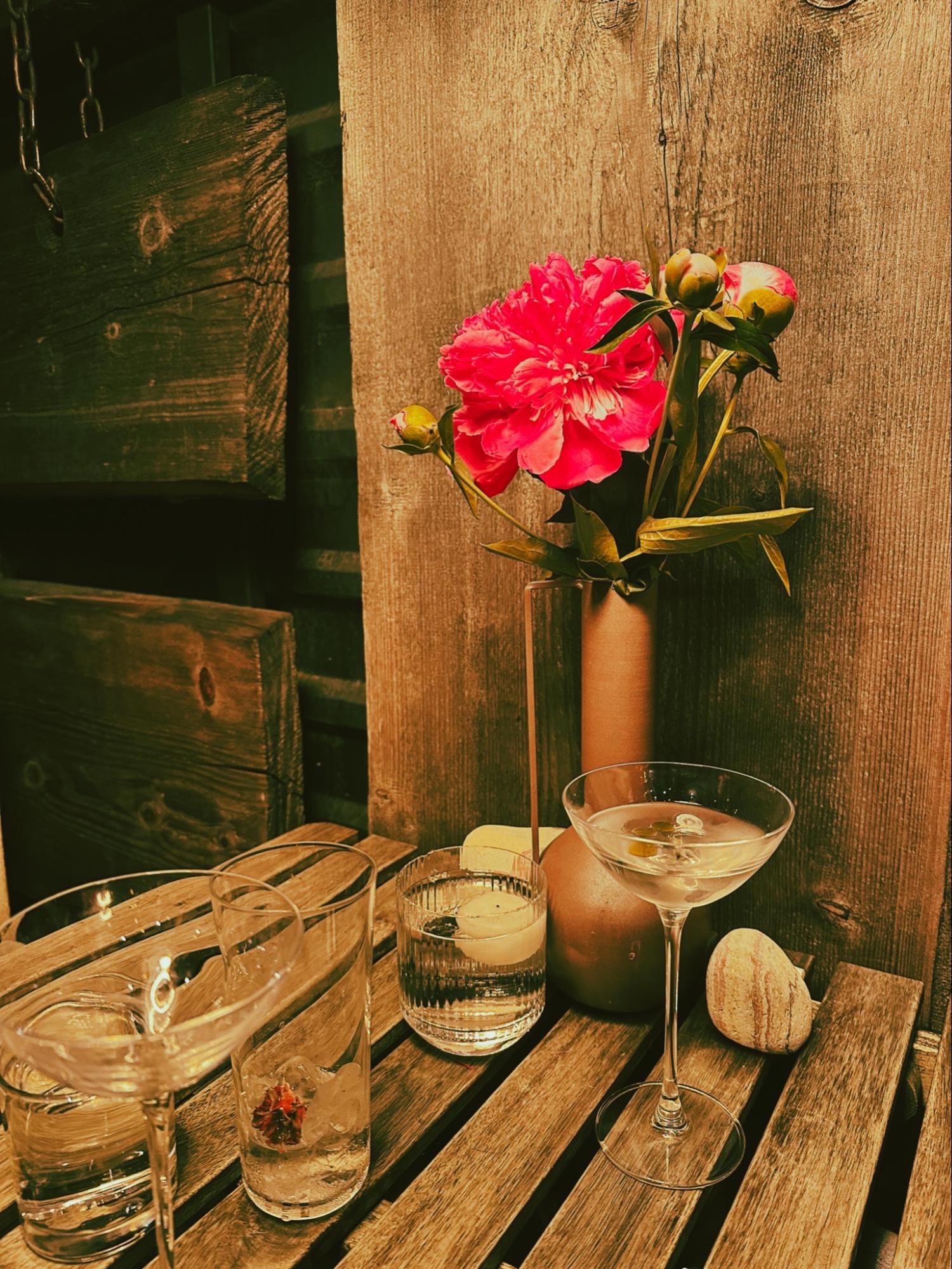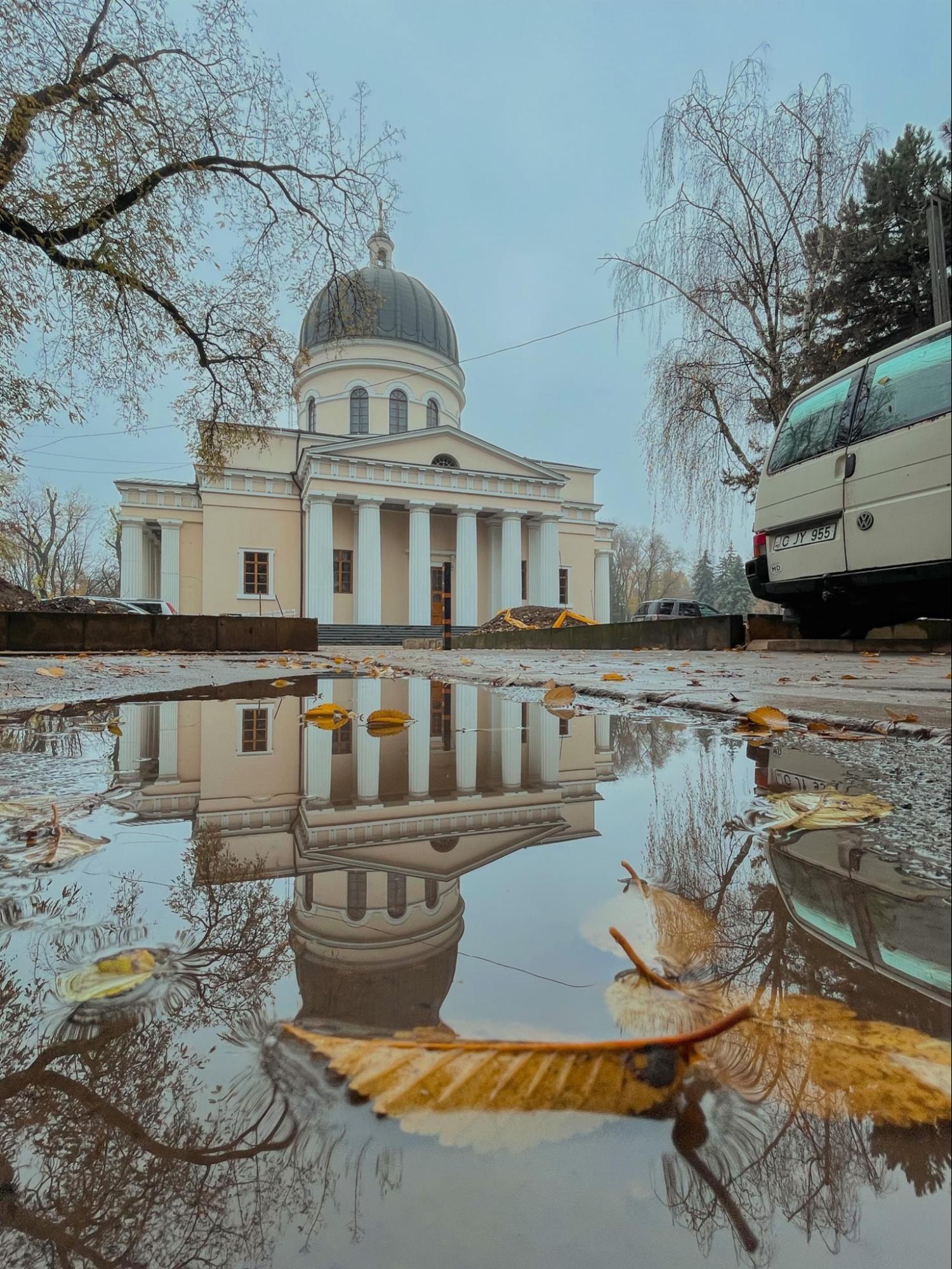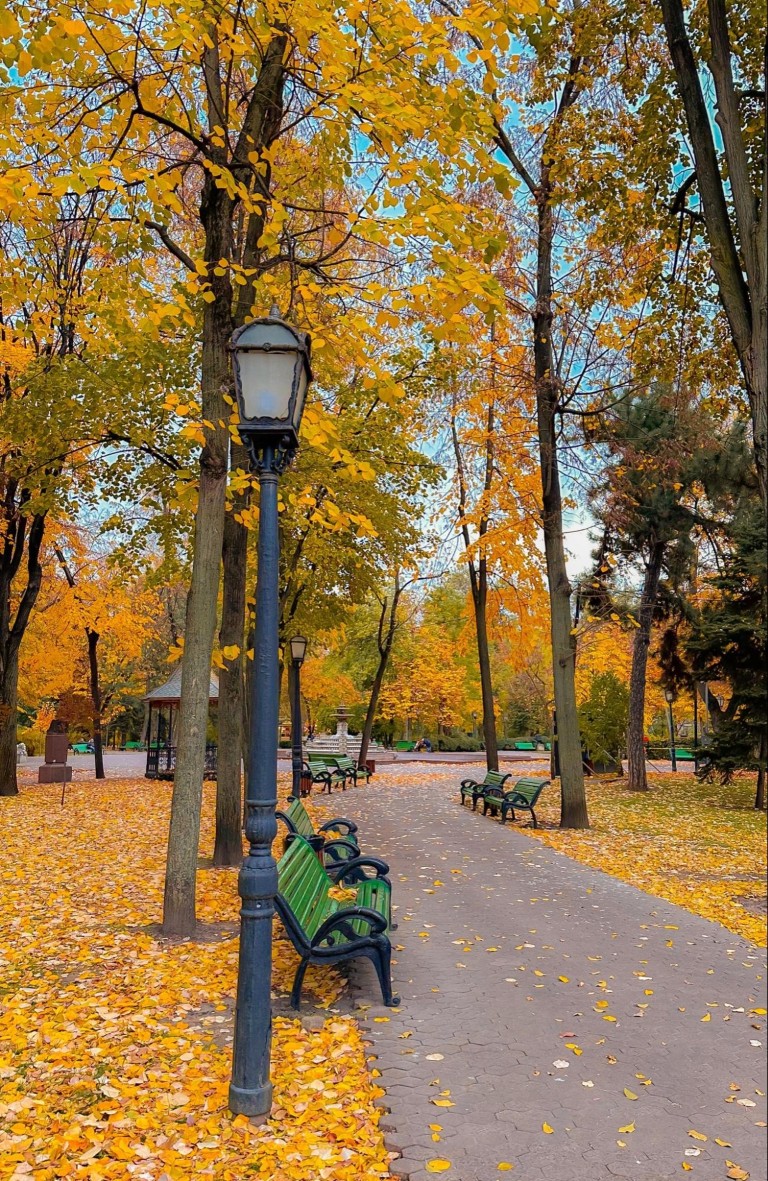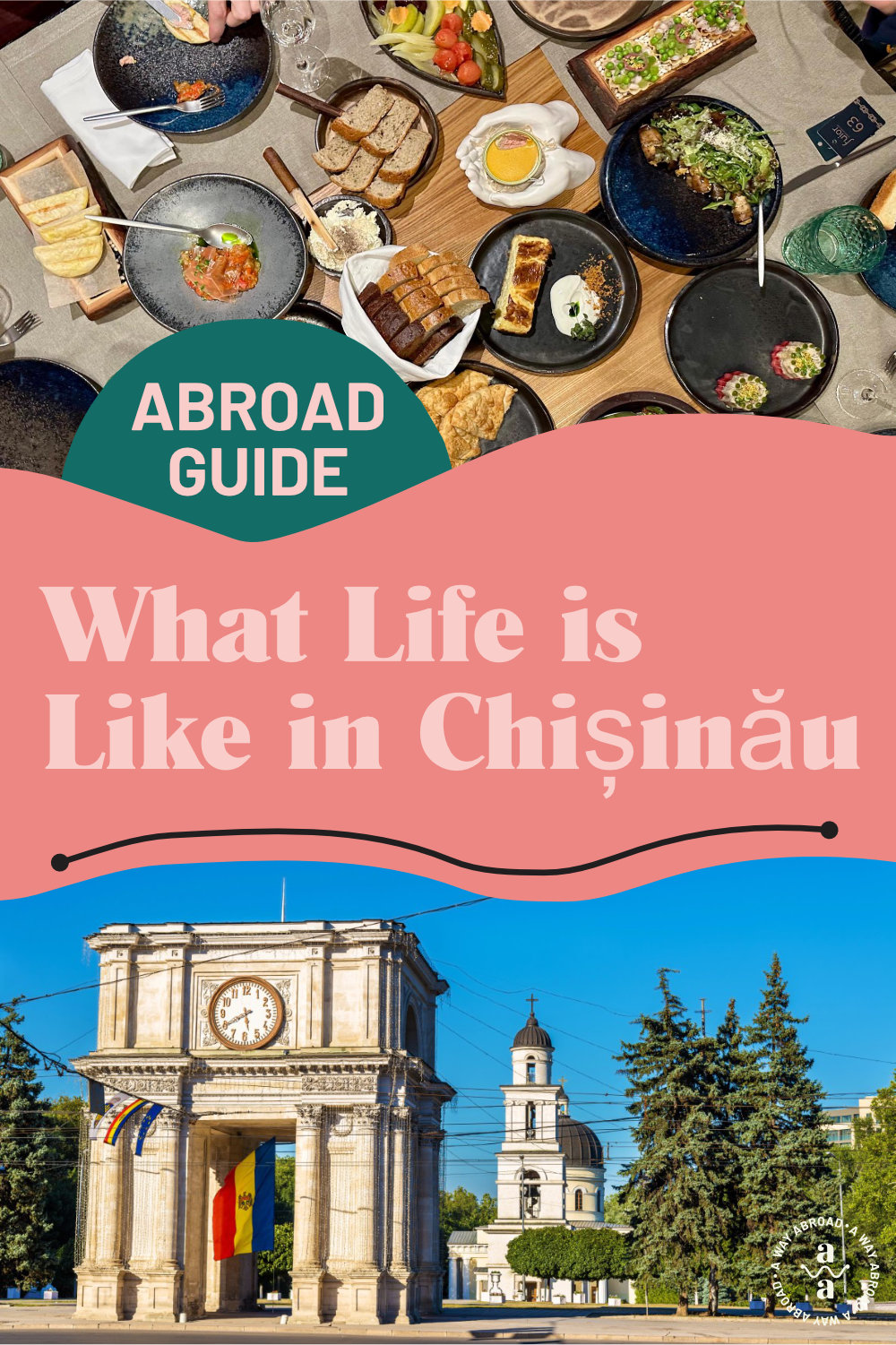Moldova might not be the first place that springs to mind when dreaming of moving abroad—or, let’s be honest, a place you’ve thought about at all.
But indulge me for a moment, and allow me to make a case for why you might want to think again.
Hey ho, let’s go. Folklore, rock ’n’ roll!
So begins Zdob și Zdub’s 2022 Eurovision banger “Trenulețul”: (“Little train”) a turbo-charged blend of Moldovan folk and punk rock — oft compared to the Ramones' “Blitzkrieg Bop” — which documents an eventful train ride between the Moldovan and Romanian capitals. Before that, Moldova gifted the world the viral Epic Sax Guy back in 2010.
And, to the casual observer, that might sum up Moldova: reliably bonkers Eurovision entries from a little-known, landlocked Eastern European backwater, somewhere vaguely between Romania and Ukraine.
But that would be doing Moldova a massive disservice.
Yes, it’s one of Europe’s poorest — and least visited — countries. But for those willing to look beyond the clichés and its sometimes-rough post-Soviet exterior, it offers an authentic, budget-friendly expat experience. Think: hearty food, warm (if sometimes brusque) hospitality, and world-class wine (seriously — Moldova has some of the largest wine cellars on planet Earth!) Add a fascinating blend of Latin and Slavic influences, and some stunning scenery and you’ve got a destination that punches far above its weight and size.
Short on time? Here's the cheat sheet
💭Living in Chișinău means the chance to live in a place few ever visit.
🏠Apartment hunting is relatively easy. Consider starting in Centru or Botanica.
📚Make your transition easier and get a headstart learning the language with Mondly.
🛂Most foreigners who move to Moldova get 90-days visa free. To stay longer you'll need a job, study, or investment to tie you here.
🤕Don't rely on luck alone. SafetyWing now offers 2 types of Nomad Insurance coverage options: Essentials for travelers and Complete for expats and digital nomads.
☂️Although winters care cold and the language barrier is real,
🏖️Living in Chișinău offers plenty of soul and neverending surprises.
What to Expect from Moldova

Independent since 1991, Moldova is still finding its feet — caught between Soviet-era hangovers and a very real desire to join the EU (they even voted to enshrine that goal in their constitution recently). For the politically curious and culturally adventurous, it’s a rare moment to witness a country in flux. On the cusp of something new. A place where progressive, socially-minded youth push for progress in one corner, whilst parochial pensioners bussed in from the provinces clutching protest placards resist change in the other.
It’s a country where lavender fields that wouldn’t look out of place in Provence, mingle with Soviet relics, including Laptop Lenin, a metallic statue of the former Soviet leader in the Russian majority speaking province of Gagauzia.
Steering the country is a president one can really admire — a rarity in today’s world of politics.
Chișinău (pronounced “Kish-i-now”), the small, unassuming and often-overlooked capital of this Eastern European gem, may not wow you at first glance — but give it time and I promise you; it’ll get under your skin. With its sleepy pace, leafy parks, quirky cafés, a surprisingly good techno scene, and almost complete absence of pretension, it grows on you. It’s a place full of contradictions. A city that blends Latin flair, Slavic soul, and post-Soviet grit into something unexpectedly lovable. Where else can you get a €4 bottle of award-winning wine in an up-market restaurant, then grumble with old babushkas at the bus stop about the outrage of paying 6 Leu (0,25 € cents) for the bus ride on the way home.
With time, its quirky contradictions, budget-friendly vibes, and a history that’s as rich as its world-class wine will win you over. I arrived knowing next to nothing and ended up finding something I didn’t even know I was looking for: peace, perspective, and potatoes stuffed in just about everything.
So whether you're here to work, study, slow down, or just sip endless Cabernet, at affordable prices, here’s your insider guide to making Moldova’s unassuming but lovable capital your home — from apartment-hunting hacks to navigating visas — and why Chișinău quite possibly has the best nail technicians per capita in the former Soviet Union (most of them borrowed sadly now from Ukraine).
Chișinău Overview & Districts

Chișinău is compact enough to feel walkable, but diverse enough that your choice of neighborhood will shape your experience. Here’s a breakdown of the most popular districts:
- Centru (City Center) – The beating heart of Chișinău, with Ștefan cel Mare Boulevard as its spine. Home to government buildings, shops, cafés, and parks. You’ll find Soviet architecture alongside leafy boulevards. Most expats start here.
- Botanica – A quieter, residential area with the vast Valea Trandafirilor (Rose Valley) park and lots of Soviet-era blocks. As the name would suggest it’s lovely and leafy and green. Ideal for families or those craving calm.
- Rîșcani – More local, a bit grittier, but a good option if you're seeking lower rent. It’s well-connected by trolleybuses and has a lively market vibe. Ideal if you want to blend in.
- Buiucani – More upscale, with newer apartment blocks and several embassies. Somewhat suburban in feel.
Insider Tip: The city radiates outward. The further from Centru you go, the more commuting is involved.
Buses, trolleys, and minibuses ("rutieras") are cheap and frequent. Electric trolleybuses and rutieras (minibuses) cost 2 Leu a journey when I arrived in 2022; there was nearly a riot when they tripled in price to 6 Leu. Google Maps is iffy—ask locals or use Moovit. Bolt or Yandex are used over Uber for taxi rides.
Finding an Apartment
Apartment hunting is relatively easy — often done through:
- 999.md – Moldova’s main classified site
- Lara.md – More user-friendly apartment listings
- Facebook groups like “Chirie Chișinău” are also goldmines.
Key things to know when apartment hunting here:
- Most rentals are furnished, often with retro Soviet vibes (think floral wallpaper and creaky cabinets) so you might want to bring flat-pack furniture with you or ship in your own stuff.
- Prices vary: €250–€300 for a furnished studio in Centru, €300–€450 for a spacious two-bedroom in Botanica or Rîșcani. Buiucani can hit €500 for newer builds.
- Landlords prefer cash, which can be tricky for residency paperwork—insist on a contract if you need proof of address.
- Heating is centrally controlled by the city, kicking in around November and shutting off in March, so pack layers for chilly shoulder seasons.
It goes without saying but always visit apartments in person—photos on 999.md can be... optimistic. And haggle politely on price; landlords expect it.
Job Hunting Tips
I moved here for humanitarian work at the start of the Ukraine war and stayed to write — but local jobs can be tricky. Moldova has a high emigration rate, and salaries are low by Western standards —average €400–€600/month. But if you’re working remotely, the low cost of living makes Chișinău a dream.
Knowledge of Romanian or Russian is a huge advantage, if not essential for most roles. Otherwise, focus on:
- NGOs & International Orgs: Think UN, EU projects, or humanitarian work, especially post-2022 Ukraine crisis.
- English Teaching: Modest pay (€5–€10/hour) but steady demand. Check ESL Moldova on Facebook.
- Tech & Outsourcing: A growing sector, with companies like Endava hiring bilingual talent.
Insider Tip: Learn basic Romanian or Russian—it’s a game-changer. Without either, remote work or international roles are your best bet. For freelancers, coworking spots like Digital Park or Sincer Café are great for networking with Chișinău’s small but vibrant digital nomad scene.
Things to Do & Social Scene

Chișinău isn’t Berlin, but it’s got soul and surprises.
Bars & Nightlife
- Taproom 27 –Craft beer haven with local brews and expat-friendly vibes.
- Zaxi Sky Bar – Rooftop cocktails with killer views of Chișinău’s skyline.
- Plin cu vin (or full of wine for the non-Romanian speakers) – My favorite—a hidden gem off Ștefan cel Mare with fairy-lit outdoor seating and €2 glasses of local wine. Perfect for mingling with the locals.
- Marlene - fancy cocktails and satin shell bar stools your kinda thing? Then head here.
- CasaRoz -
- Covor - a magical Prohibition-era style speakeasy
- Julien’s Gastro Bistrot - a highly recommended French restaurant that turns into a nightclub after 10.30pm.
- Oro Restaurant club - located in the heart of Chisinau at the main entrance to Valea Trandafirilor (Rose Valley Park), it likewise becomes a club after dining hours.
- Smokehouse: A divey spot with live music and a techno scene that rivals Eastern Europe’s best. Check Uptown Club for underground DJ nights.
Cafés
Many cafes feel like Parisian outposts — Bonjour Café, an outdoor café stand with seating in Cathedral park plays soft Carla Bruni songs and just off from there Crème de la Crème serves French-style pastries and espresso that’ll make you forget Starbucks. If French isn’t your vibe, there’s Tucano Coffee: International vibes, great for digital nomads.
Restaurants
Plăcintă Obsession: Moldovans takes its plăcintă (pronounced plah‑CHEEN‑tuh), the pastry/pie/savory or sweet pocket of delightful dough, seriously. From cheese, potatoes, cabbage, fruits, or pumpkin, baked or fried, the variety is huge.
- There’s a restaurant chain “La Plăcinte” in Chișinău where you can get plăcintă with classical and surprising fillings. Plăcinte are so engrained in the national psyche they are listed in the National Register of Intangible Cultural Heritage in Moldova, meaning they are recognized as part of the country’s cultural identity.
- Sincer is a great, organic and health food option which does some surprisingly tasty vegetarian and vegan fare. It’s popular with digital nomads and trendy locals as a place to come and work or just hang out and be seen for a while. Great for coworking or showing off your laptop.
- Maestro -run by super friendly Syrians, serves the best Arab food in town!
- For upscale dining try Fuior. They serve modern Moldovan dishes—think venison with local wine reductions.
Insider Tip: Try mămăligă (polenta) with brânză (sheep cheese) and smântână (sour cream) at any traditional spot—it’s Moldova’s comfort food.
Shopping
Markets are great for produce. Supermarkets like Linella or Nr. 1 are everywhere and you can get pretty much everything you would expect to. Whilst you do get some more Turkish-owned budget-friendly brands – LC Waikiki and Defacto, you can also find Zara and more expensive labels in the bigger malls, like MallDova. Yes, MallDova is the actual name of the mall. If anything, you have to give Chisinau plaudits for its puns
Parks & Nature
- Cathedral Park - small green space centrally located which houses the Cathedral and one or two eateries, such as Bonjour Cafe.
- Stefan Cel Mare Park - opposite Cathedral Park, this park also has some eateries within it and sometimes has live music in the evenings.
- Valea Morilor: A sprawling park with a lake for swims, runs, or sunset strolls.
- Dendrarium Park: Quieter, with rose gardens and picnic spots.
- Valea Trandafirilor (Rose Valley Park) - another popular picnic spot, good for watersports. You can rent pedalos, or just run, bike or walk around the lake.
- Lavender Fields: In summer, lavender fields outside the city make perfect day-trip material when these purple seas bloom: slow drives, dreamy views, picnic spots, and that unmistakable scent. Try Cobusca Nouă or Valea Stancii. Come June–July rent a car, pack a picnic, and lose yourself in Instagram-worthy views.
- Orheiul Vechi: A hidden gem, a 40-minute drive away, for cave monasteries, ancient ruins, and stunning river views. It’s Moldova’s historical soul.
Martial Arts
Moldova has a strong fight culture. I’m lucky enough to train in Muay Thai with Artiom Livădari, two-time World and European Games champion. The gym where he trains, Bercut Fight Club, is gritty—think Rocky IV meets Soviet chic—but it’s affordable (€30/month) and welcoming despite the language barrier. Other options include Lion Fight Club for kickboxing or Yoga Studio Chișinău for a calmer vibe.
Wineries
Moldova’s wine culture is amazing. Wine is woven into Moldova’s DNA. In fact, along with Georgia it was one of the Soviet Union’s major wine producers. Visit:
- Cricova – Vast underground tunnels
- Milestii Mici – Guinness-recognized for its size
- Asconi – a family run business in Puhoi, about 40 minutes from Chisinau, open for lunches, events – it even has its own pool and bizarrely, some old army jeeps.
- Castel Mimi – known for its chateau-style architecture. Close to Transnistria.
- Purcari – My personal favorite: gorgeous chateau, award-winning Negru de Purcari. Purcari has been making wine since 1827, its wine cellars are storied, the setting is gorgeous, and visitors can stay in a chateau, take vineyard walks and sample the wine.
Insider Tip: Moldova’s National Wine Day (first weekend of October) is a must. The city shuts down for wine tastings, live music, and street food—think plăcintă and kebabs galore. Follow Artcor, Moldox, or Eco-Village Moldova for cultural events.
Soviet Oddities
- Transnistria – The breakaway region of Transnistria (self‑declared but not internationally recognized) is a Cold War time capsule and a 90-minute drive from the capital. It’s often talked about, so as an expat it’s one of those regional curiosities you’ll hear about; known for its Soviet relics, politics, and weird limbo status.
- Lenin statues: there are still a few Soviet statues scattered across rural Moldova — eerie and oddly iconic, there’s a great statue of Lenin – affectionately dubbed Laptop Lenin – in the Russian-speaking region of Gagauzia that’s a must-see.
Insider Tip: The expat scene is small but welcoming. Join Expats in Moldova or Digital Nomads Chișinău on Facebook for meetups, apartment leads, or just to vent about landlord ghosting. Locals are curious about foreigners—learn a few Romanian phrases, and you’ll be invited to family dinners in no time.
Visas & Legal Stuff

Moldova is fairly welcoming to foreigners —their tourism slogan is ‘be our guest’ — but here’s what you need to know.
For citizens of the EU, US, UK, Canada, and many others, you can stay visa-free for up to 90 days in a 180-day period.
To stay longer, you’ll need a job contract, proof of study, or investment. The Bureau for Migration and Asylum (BMA) handles applications, but expect delays and paperwork. The process can be bureaucratic and slow, so plan ahead. Alternatively, plan to rotate every three months and make the most of the summer months and restrict your exposure to the worst of winter.
Insider tip: Carry a copy of your passport; police checks are rare but happen. For visa help, Moldova Immigration Services offers paid support to navigate the red tape.
Cost of Living
Moldova is one of the most affordable countries in Europe. So, if you have a good remote job, and you find your community, Chisinau can be an affordable option.
- Rent: €250–€450/month
- Groceries: €100–€150/month
- Public transport: €6/month (yes, really!)
- Eating out: €5–€10 for a full meal
You can live well on €700–€1,000/month. If you’re earning in foreign currency, you’ll live comfortably.
What I Wish I Knew Before Moving

Who Ștefan cel Mare is. Moldova’s national hero and a unifying figure across Romanian and Moldovan history Ștefan cel Mare (or Stefan the Great to you and me) was a 15th-century warrior-prince who fought off Ottomans, built monasteries, and became a symbol of resilience. His statue and name graces Chișinău’s main boulevard, and he’s name-dropped in Zdob și Zdub’s “Trenulețul” as the “great lord” uniting the two nations’ shared heritage. Locals will happily tell you about his 47 battles (he won 44!) over a glass of rakija. Visiting his monument or the nearby history museum is a must for any expat wanting to get the vibe of Moldova’s pride.
Language barriers are real. A few Romanian phrases go a long way:
- “Bună dimineața” = Good morning
- “Bună seara” = Good evening
- “Merci” = Thank you (borrowed from French) is easier to remember – and pronounce - than the proper Romanian, Multumesc.
- “Cu plăcere” = You’re welcome
Salaries are low — don’t expect Western wages.
Winters are colder than expected, (-10°C is common and pretty brutal), and central heating is hit-or-miss. Pack thermals and a good coat. Snow is magical…until it’s grey slush. But here’s the upside: Chișinău celebrates both Western (Dec 25) and Orthodox (Jan 7) Christmases during which time Chișinău lights up. Streets, plazas, cafés, and yes, even electric buses are adorned with festive illuminations. The mix of two Christmas traditions gives a double festivity vibe in the winter!
Chișinău’s nail salons (try Nail Art Studio in Centru) are world-class and cheap (€10-15 for a manicure). Book ahead; they’re packed.
Customer service is… a work in progress. Soviet-era gruffness lingers—don’t take it personally if a cashier snaps. People are generally kind, but don’t expect “have a nice day” with every purchase and be prepared to deal with the occasional grumpy waiter or waitress. But when locals warm up, they’re family.
Must-pack items: Warm winter clothes, loose summer clobber, any meds you need, and patience for paperwork.
Will You Move to Chișinău?
Although Moldova isn't the first, or even second, place many consider when moving to Europe, it's been a choice I'm so happy I made. It won't compare to the other places you may have visited in the continent and, personally, that's one of favorite things about living here. Often overshadowed by its better-known neighbors, Moldova is one of Europe’s least visited countries — but that’s also part of its charm.
Chișinău is a city where time feels slower, people are hospitable, after a fashion, wine flows generously, with some of the world’s largest underground cellars beneath your feet and expats are rare enough to be welcomed with genuine curiosity.









.png)
.png)